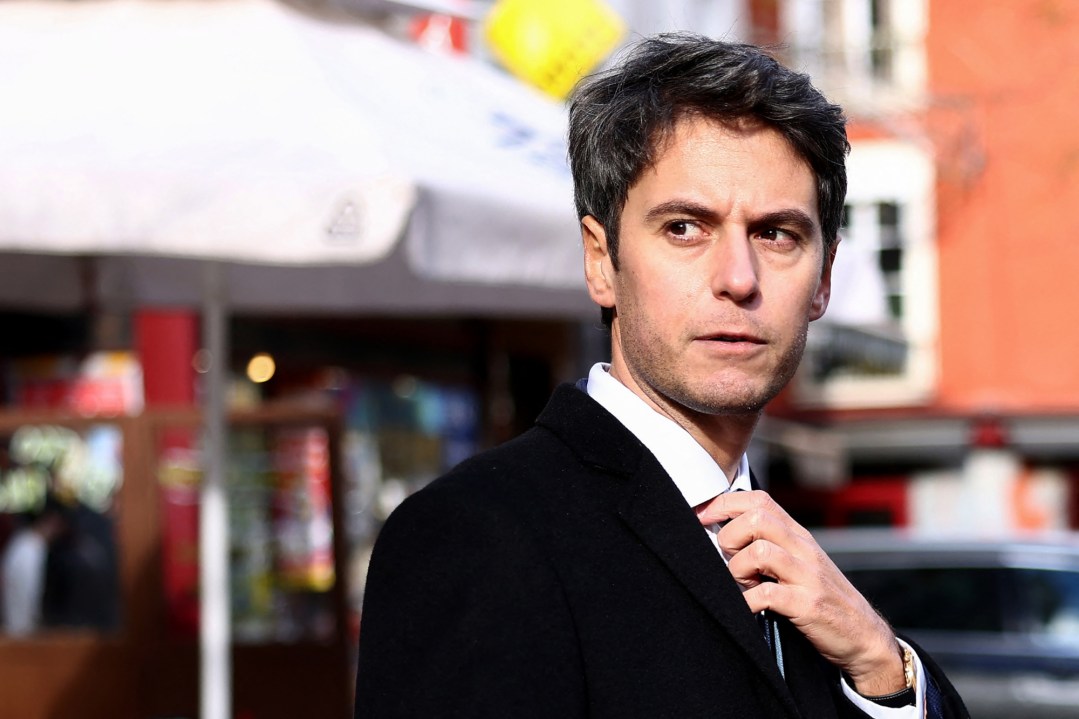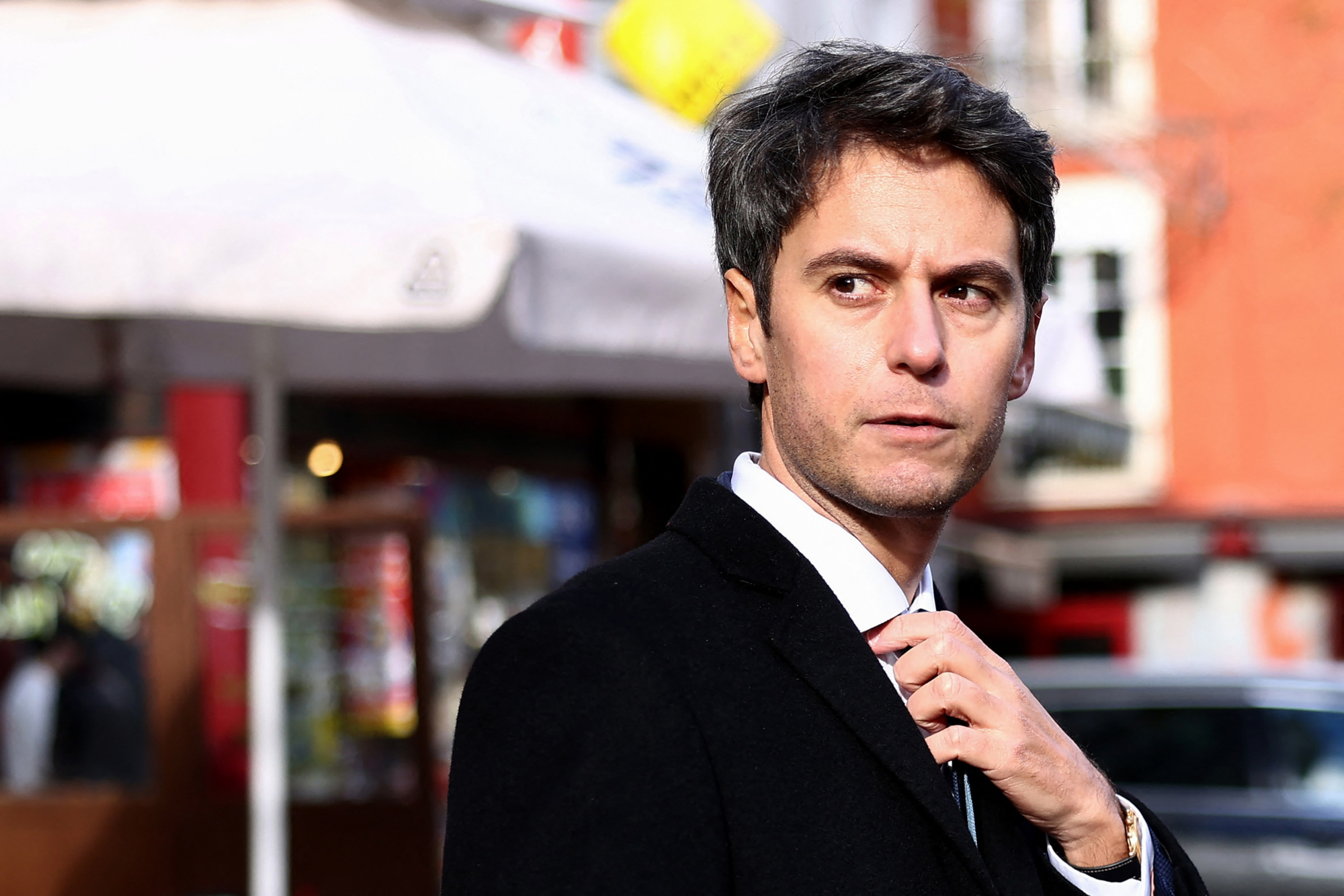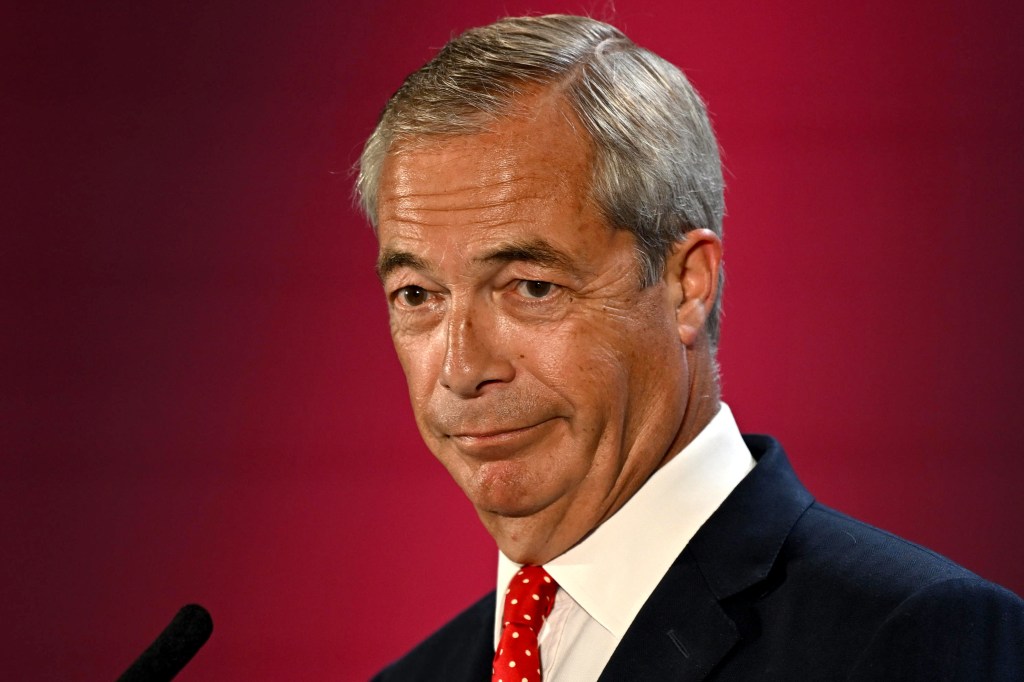An imam at the Grand Mosque of Massy, just outside Paris, has threatened to issue a fatwa against former Prime Minister Gabriel Attal, head of Macron’s party Renaissance, for his proposal to ban the hijab for girls under 15. In a video that has gone viral in France, the imam declared that Attal is ‘pushing us to issue a fatwa’ and that ‘I will be the one to dictate it’. His words have sparked outrage on the right. Interior Minister Bruno Retailleau has referred the matter to the courts, and Attal himself is weighing legal action. The left meanwhile remains mostly quiet.
Across France, a growing network of activist preachers, YouTubers, and self-appointed ‘defenders of Islam’ are pushing the line between free speech and incitement
Gabriel Attal was in London on Wednesday, meeting French expats at a hotel in Kensington. Attal, who was France’s first openly gay Prime Minister, is no doubt protected by his own security detail, as well as presumably by the Met’s diplomatic protection team. Gabriel Attal’s suggestion to introduce legislation banning girls under 15 from wearing the hijab in public is not yet a formal bill, and the government itself has not officially endorsed it. Nevertheless, the proposal has become a political lightning rod.
Attal argues that Muslim girls are subject to religious pressure from families and communities to cover up. His aim, he says, is to free them from that coercion. Critics have accused him of stigmatising Muslims and exploiting the issue for political gain. Attal maintains that the measure is a defence of secularism and a response to the advance of cultural separatism in the Muslim community.
The threat of a fatwa proves the stakes are higher than ever. The imam’s rhetoric isn’t just posturing, it signals a deeper fracture. Make no mistake, this is France staring into the abyss of its own identity crisis.
Noureddine Aoussat is no fringe preacher tucked away in a provincial backwater. He is an imam at the Grand Mosque of Massy, a sprawling and influential Islamic institution in the southern suburbs of Paris, not far from Orly airport. Aoussat doesn’t issue edicts from the shadows. He appears on TikTok, Facebook, and YouTube and gets views in the tens of thousands. This is a man who knows how to wield both scripture and social media, and he’s using that reach to stir anger and division.
Across France, a growing network of activist preachers, YouTubers, and self-appointed ‘defenders of Islam’ are pushing the line between free speech and incitement. Aoussat has no compunction in issuing what amounts to a religious threat against a politician. It’s not just shameless. It’s dangerous.
France’s fiercely defended model of secularism is codified in the constitution and underpins laws that ban conspicuous religious symbols in schools and public services. The idea is simple: religion belongs in the private sphere. Yet as immigration and religious pluralism have intensified, so have tensions. Preachers like Aoussat are testing the boundaries, pushing the limits of free speech. And the state, for all its talk, is often paralysed for fear of being labelled Islamophobic.
France has allowed the growth of a parallel ecosystem – religious, social, and digital – in which figures like Aoussat flourish. These imams aren’t isolated. They’re networked, funded, and increasingly bold. They see themselves not just as spiritual guides, but as political actors. And the more the state hesitates, the more they advance.
Bruno Retailleau, the Interior Minister, wasted no time referring the case to the public prosecutor. But from the left, there has been silence. Jean-Luc Mélenchon, ever quick to denounce perceived racism, has had nothing to say about a French imam threatening a fatwa. His double standards are glaring and telling.
This isn’t just about one imam and one law. It’s about France’s capacity to uphold its founding values in the face of rising pressure. When an imam can publicly threaten a former Prime Minister and head of the ruling party with a fatwa, and do so from a well-known mosque in the Paris suburbs, it raises a question that goes beyond secularism. It signals the erosion of the state’s authority and highlights the risks of continued official paralysis.
A fatwa doesn’t need to be carried out to do damage. Merely invoking one creates a climate of intimidation. France will no doubt come down hard on this imam and so it should. It’s not just Attal who has been threatened. It’s every politician, journalist, and citizen who dares to speak against fundamentalism. This isn’t only about defending Attal. It’s about defending the Republic and its values.








Comments